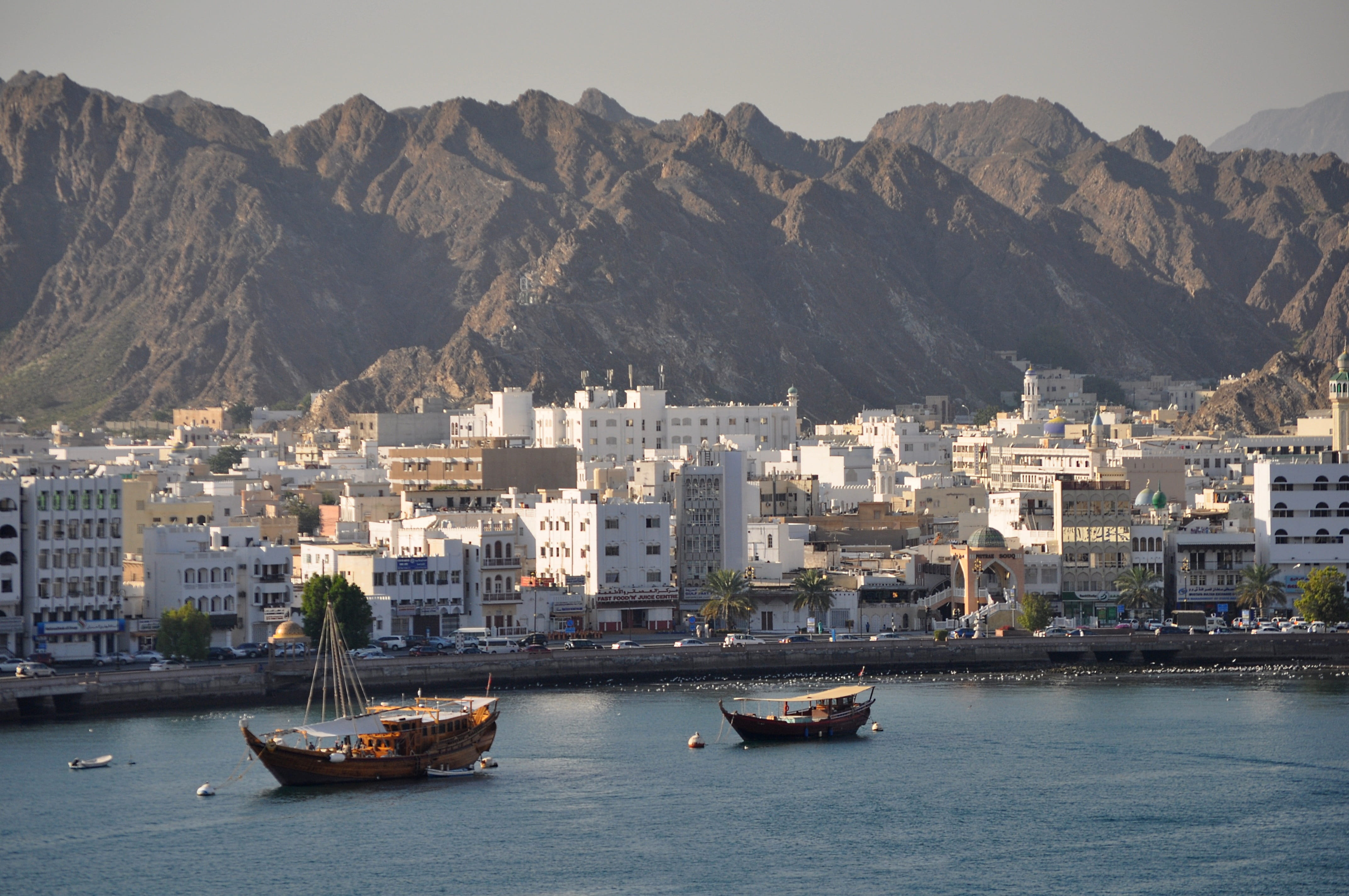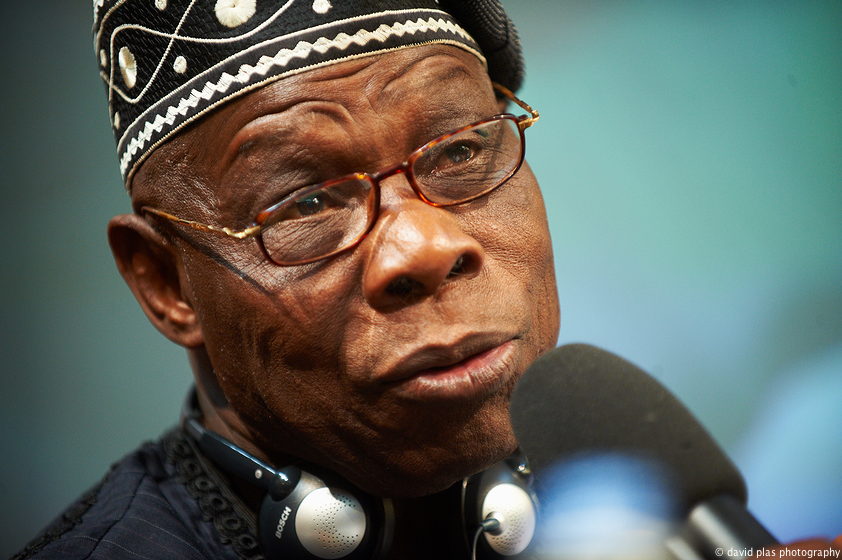News
Can Insurgencies be Beaten; Can Outsiders Help? Oman's Lessons for Afghanistan and Ethiopia
The failure of the West in Afghanistan has fed an opinion which holds that outsiders should stay away from such conflicts since nations cannot be built out of external assistance. Moreover, the international community has neither the long-term appetite or capacity to assist, and such circumstances invariably are synonymous with state fracture and frailties that outsiders can barely understand, let alone resolve.

According to this argument, Afghanistan is now, stripped naked of the internationally supplied paraphernalia of statehood, exposed as a loose collection of warring tribes, clans and religious tendencies, all of which apparently transcend Afghan identity.
Put differently, the core problem identified in this “don't try to nation-build” argument is that this is impossible when the majority of people living in a territory don't identify first and foremost as citizens.
On top of this, the Afghan state possessed a limited ability to govern, reflecting both the source of its income and character of other power centres. Afghanistan after the Taliban's (temporary as it turned out) removal from power in 2001 was extraordinarily dependent on foreign aid, generated from the taxpayers of others, to keep it afloat. And having opium as its principal export accentuated the power of warlords over the state.
The difficulty of the state-building challenge is influenced by the neighbourhood. Afghanistan is surrounded by a collection of countries — Pakistan, Tajikistan, Uzbekistan, Turkmenistan and Iran included — that could be classified among the least helpful possibilities. All were less committed to peace than to the transactional opportunities that arose from the international presence and from, paradoxically, the continuation of conflict. It's tough to prevail in any conflict when the insurgency receives support from just across the border.
All of these factors — identity, economic viability and governance, and neighbourhood — are intensified by incompetence and corruption.
These pointers don't only apply to Afghanistan, but resonate with the earlier US experience in South Vietnam — a dilemma which President Lyndon Baines Johnson aptly described in 1965, even prior to the massive US military build-up: “I feel like a jackass caught in a Texas hailstorm. I can't run, I can't hide, and I can't make it stop.”
Contemporary Ethiopia contains many of the same state-building danger signs: internal division, a tough neighbourhood and a weak state, and leadership under Prime Minister Abiy Ahmed that has lost touch, distracted by messianic purpose and challenged, like President Ashraf Ghani's Afghanistan, by an insurgency that is disciplined and has a clear purpose.
The flip side of leaving these conflicts alone — essentially to give war a chance — is that the consequence of such neglect is seldom bliss. Aside from the shared human rights concerns in a world which professes common values, there are clear shared interests in not allowing chaos to ensue. Unhappy people flee across borders, humanitarian disaster stories flood our screens and gnaw (for good reason) at domestic political conscience, radicalism seems like a popular (and perhaps the only) option and sometimes, in the circumstances, the victims (never mind the protagonists) strike back, including through terrorism.
Yet there are circumstances in which a combination of domestic ownership and external assistance has made a positive difference, helping to create the conditions where an insurgency accepts peace over war. Colombia is one; Oman is another.
Oman, at least before 1970, is a case study on the compounding effects of internal rivalries and weak governance producing a series of bloody rebellions and little development. Once the colonial power in Zanzibar, from which it had profited handsomely in the trade of slaves and spices, by the 1960s it was a development backwater, dependent on Britain for protection, divided between north and south, and between the coast and the interior. The Sultan, Said bin Taimur, had ruled through a combination of paying off the warring tribes and by eccentric neglect. At nightfall, the gates of Muscat would be locked, and anyone walking around had to carry a hurricane lantern. The country — covering a piece of real estate larger than Italy or the Philippines — had just five kilometres of paved road, while there were just three primary schools and one hospital. Per capita income was around just $400 in 1970, though the advent of oil production in the mid-1960s had started to drive it upwards.
In learning from its experience in fighting the Saudi-supported insurrection in the Jebel Akhdar in the “empty” interior of Oman in 1957-59, in the 1960s the British military drew up a “five-fronts” concept to restore stability, centring on having a national aim and a better understanding of what made citizens unhappy, which they might be able to deliver against, including aspects of healthcare and education, along with military effectiveness.
Still, the Dhofari insurgency in Oman's south, inspired by the prevailing revolutionary Nasserite zeal and armed by the Soviets and Chinese, took on an increasingly threatening character. Then, in a British-supported coup, in July 1970, the Sultan was deposed by his Sandhurst-educated son, Qaboos bin Said, who instigated a five-point plan, encompassing major social, economic and educational reforms: A general amnesty, the incorporation of the province of Dhofar, a strategy for wider international diplomatic recognition, a national development drive, and effective military opposition to those who did not accept amnesty.
This new, enlightened leadership made a difference. The back of the Dhofari insurgency was broken at the Battle of Mirbat in July 1972, a battle described as a scene from Dante's seventh circle by the author Rowland White, when a force of around 400 rebel adoos (Arabic for “enemy”), advanced on a position defended by a nine-person British SAS training detachment and a hundred local firqat soldiers and paramilitary askars. With increased assistance thereafter from the Shah of Iran and Jordan, the rebellion was all over by 1976. This was helped by the steady flow of oil revenues, while small by regional standards, which had started to come on stream, with per capita income of $2,760 that year.
Qaboos ruled until his death from cancer in January 2020. By then per capita income had, while suffering from depressed oil prices, increased to more than $15,000. And while always vulnerable to the vagaries of commodity prices, average economic growth increased from 6% in the 1970s to 10% in the 1980s, averaging 5.5% from 1970 to 2019. GDP increased over the 50 years of Sultan Qaboos' rule, from $6-billion to $72-billion.
Figures aside, this shows more vividly in the extent of infrastructure development.
The odd royal yacht aside, Qaboos spent the oil windfall wisely, less on the regional habit of skyscrapers and vanity projects than on roads, schools and hospitals. The UN Development Index, which measures health, education and income, in 2010 listed Oman as the country that had improved the most over the previous 40 years, while just three — Zimbabwe, Democratic Republic of the Congo and Zambia — had worsened. By 2021, the Index placed Oman 60th out of 189 countries. South Africa is at 114.
Of course, this trajectory has not, as ever, been without its problems. Attempts to wean the country off its dependency on hydrocarbons — which generate around 80% of exports — have not been easy, while the 2020 fall in global oil prices has strained the government's books.

To achieve the requisite reforms, the government — and the new Sultan — will have to renegotiate its rentier contract with the population, which means a cut in public spending and subsidies. This will be made tougher by higher unemployment rates (around 15% nationally and twice that figure among young people) and will inevitably have political implications to let out the steam. This will likely demand greater citizen participation and representation than currently allowed by an absolute monarchy.
Still, by comparison to the 1970s, Oman is a success story.
“Do not try to do too much with your own hands,” TE Lawrence observed. “Better the Arabs do it tolerably than you do it perfectly. It is their war, and you are to help them, not win it for them,” wrote the British officer better known as Lawrence of Arabia.
Or to bring this observation more up to date, as the former Chief of the UK's Defence Staff, Lord Jock Stirrup, who served in the Sultan's Armed Forces on loan in the early 1970s, has noted, success “requires a sustained and credible effort by those who run the existing system; reconciliation is an internal issue, and cannot be imposed from without. It must address people's concerns for the future and give them a stake in the governance structure, not surrender governance to a competing group… As for the military line, the first thing to understand is that it's indispensable. It cannot deliver strategic success, but it is essential to its delivery…”
Security, put differently, is insufficient, but necessary in countering insurgency.
And in all of this, there is a critical leadership dimension. The collapse in Afghanistan and, seemingly now Ethiopia, betrays the circuitry and transactionalism of the elite bargains behind all leaders. Like LBJ's jackass, they're trapped in many respects. They can't go forward or back out of positions without undercutting their fragile support bases. And yet, to escape the conflict bind, leaders have to find the means to express magnanimity, and open the road to peace.
It's the difference between seeing the world in tactical steps, fighting over the scraps, and instead seeing a bigger, strategic path and picture.
Over to you, Mr Abiy.
This article originally appeared on Daily Maverick


